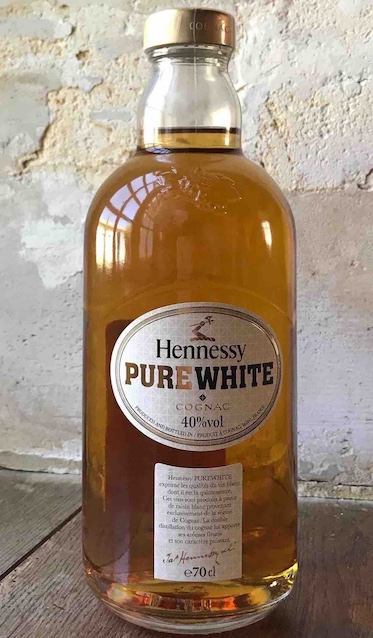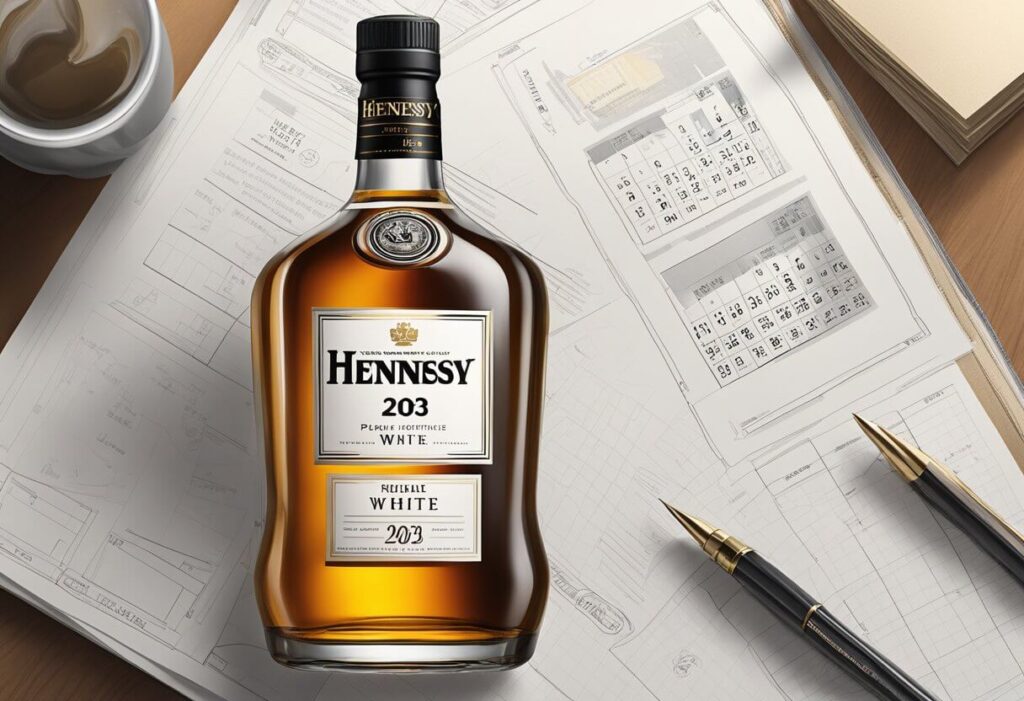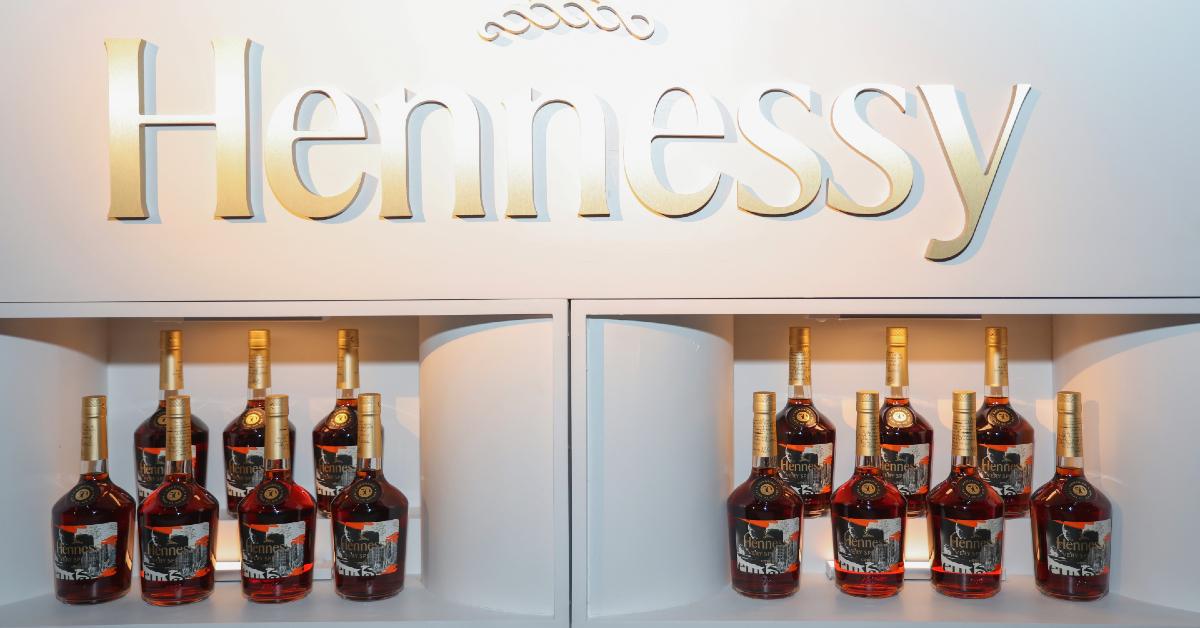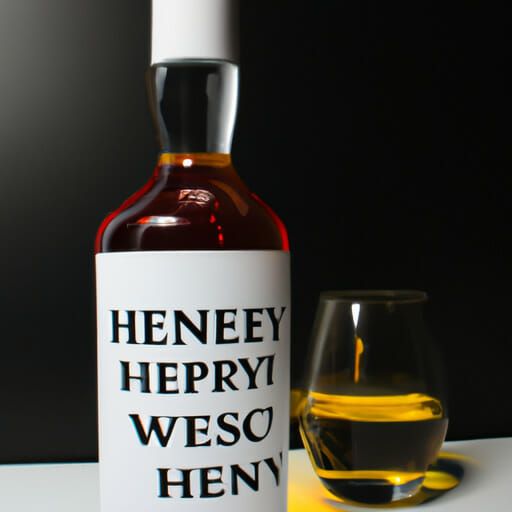The Origins Of Pure White Hennessy Cognac

Pure White Hennessy Cognac has a fascinating origin story that adds to its allure and desirability. Originally, this unique variant was created exclusively for the Asian market, where white spirits are highly coveted. With its lighter and fruitier taste, Pure White Hennessy was designed to cater to the preferences of Asian consumers. However, due to its popularity and demand from around the world, it has garnered a cult following. While it may be illegal in certain regions, its origins as an exclusive offering have contributed to its mystique and appeal.
The History Behind Pure White Hennessy
Pure White Hennessy has a fascinating history that dates back to its creation as an exclusive offering for the Asian market. It was designed to cater to the preferences of Asian consumers, who have a strong affinity for white spirits. With its lighter and fruitier taste, Pure White Hennessy gained popularity worldwide and developed a cult following. Its origins as a limited edition release contribute to its allure and desirability. Despite facing restrictions in certain regions, its history as a highly sought-after variant adds to its mystique.
Production Process And Unique Characteristics
The production process of Pure White Hennessy involves careful selection of high-quality grapes, primarily from the Grande Champagne and Petite Champagne regions of Cognac, France. These grapes are then fermented and distilled to create the base wine, which is then double-distilled in copper pot stills to enhance its smoothness and flavor profile. Afterward, the spirit is aged in French oak barrels for a minimum of four years, allowing it to develop its unique character and balance. The result is a clean and crisp cognac with floral and citrus notes, making Pure White Hennessy a truly exceptional and sought-after spirit in the liquor market.
Distinction Between Pure White Hennessy And Traditional Cognac

Pure White Hennessy sets itself apart from traditional cognac in several ways. First, its unique white color stands out, as traditional cognacs typically have an amber or golden hue. In terms of flavor profile, Pure White Hennessy offers a clean and crisp taste with prominent floral and citrus notes, distinguishing it from the more robust and oak-driven flavors of traditional cognacs. Additionally, the aging process of Pure White Hennessy is shorter, typically around three years, compared to the minimum four-year aging requirement for traditional cognacs. These differences contribute to the distinct character and allure of Pure White Hennessy.
Differences In Flavor Profile And Aging Process
Pure White Hennessy sets itself apart from traditional cognac in several ways. First, its unique white color stands out, as traditional cognacs typically have an amber or golden hue. In terms of flavor profile, Pure White Hennessy offers a clean and crisp taste with prominent floral and citrus notes, distinguishing it from the more robust and oak-driven flavors of traditional cognacs. Additionally, the aging process of Pure White Hennessy is shorter, typically around three years, compared to the minimum four-year aging requirement for traditional cognacs. These differences contribute to the distinct character and allure of Pure White Hennessy.
Reasons For Pure White Hennessy’s Popularity
Pure White Hennessy has gained significant popularity for several reasons. First, its unique and exclusive nature makes it highly desirable among collectors and enthusiasts. The crisp and clean flavor profile, with floral and citrus notes, appeals to those seeking a refreshing and lighter alternative to traditional cognacs. Additionally, its distinct white color sets it apart and adds a touch of elegance to any cocktail or occasion. The limited availability and high demand for Pure White Hennessy further contribute to its allure and desirability among spirits connoisseurs.
Understanding Liquor Laws And Regulations

Understanding liquor laws and regulations is crucial when it comes to the production, distribution, and consumption of spirits such as Pure White Hennessy. Different countries have varying alcohol regulations in place, which govern factors such as age restrictions, licensing requirements, and advertising guidelines. These laws aim to promote responsible drinking, prevent illegal activities, and ensure consumer safety. It is important for individuals and businesses involved in the liquor industry to stay informed about the specific laws and regulations applicable in their region to avoid legal issues and comply with the necessary requirements.
Overview Of Alcohol Regulations In Various Countries
Alcohol regulations vary significantly from country to country and even within different regions of the same country. Some countries have stringent regulations in place to control the production, distribution, and consumption of alcohol, while others may have more relaxed policies.
In some countries, there may be strict age restrictions on the purchase and consumption of alcohol, with a legal drinking age ranging from 18 to 21 years old. Licensing requirements for businesses involved in the liquor industry also differ, with some countries requiring extensive permits and certifications.
Advertising guidelines and restrictions on alcohol promotions also exist in many countries to prevent excessive or misleading marketing. Additionally, some countries have specific regulations regarding labeling and packaging requirements for alcoholic beverages.
These regulations aim to protect public health and safety, prevent alcohol-related harm, and promote responsible drinking practices. Understanding the specific alcohol regulations in each country is crucial for individuals and businesses in the liquor industry to comply with the law and avoid legal issues.
Specific Laws Related To The Production And Distribution Of Spirits
Specific laws related to the production and distribution of spirits vary from country to country. In many jurisdictions, there are strict regulations governing the production process, quality control, and labeling of spirits. These laws often require producers to obtain licenses and permits to ensure compliance with safety and health standards. Additionally, the distribution of spirits may be restricted to certain channels, such as licensed retailers and wholesalers. Governments may also impose taxes and import/export regulations on spirits to regulate their availability and prevent illicit trade. It is important for businesses in the spirits industry to familiarize themselves with these laws to ensure lawful operations and consumer protection.
The Legal Status Of Pure White Hennessy

The legal status of Pure White Hennessy varies from country to country. While it is not technically illegal, its limited availability in certain regions may give the impression that it is prohibited. The brand has intentionally restricted its distribution, making it challenging and expensive to acquire a bottle. However, it is important for individuals to be aware of the laws and regulations regarding the production and consumption of spirits in their specific country to ensure compliance and avoid any legal issues. It is advisable to consult local authorities or legal experts for clarification on the legal status of Pure White Hennessy in a particular jurisdiction.
Reasons For The Ban On Pure White Hennessy In Certain Regions
In certain regions, the ban on Pure White Hennessy can be attributed to various factors. One reason is the concern over counterfeit products. Due to its popularity, Pure White Hennessy has become a prime target for counterfeiters, prompting authorities to restrict its distribution to combat the sale of fake bottles. Additionally, some countries may have stricter regulations on the alcohol content or ingredients used in spirits, and Pure White Hennessy may not meet those requirements. These factors contribute to the ban on Pure White Hennessy in certain regions.
Legal Implications Of Owning Or Selling Pure White Hennessy
Owning or selling Pure White Hennessy can have significant legal implications in certain regions. The restrictions on distribution and limited availability make it challenging to obtain and sell this sought-after cognac. In some countries, it may be illegal to sell Pure White Hennessy due to regulations on alcohol content or ingredients. Those found in possession or attempting to sell Pure White Hennessy illegally may face fines, penalties, or even legal consequences. It is crucial to understand and comply with the specific laws in your area to avoid any legal trouble.
Alternatives To Pure White Hennessy

For those who are unable to access Pure White Hennessy due to its legal restrictions, there are still alternative options available. One popular alternative is Hennessy V.S (Very Special), which is a widely available and recognized cognac variety. Other cognac brands like Martell and Remy Martin also offer a range of options with different flavor profiles and characteristics. Additionally, there are other white spirits like vodka or white rum that can be used as alternatives, although they may not provide the same complexity and depth of flavor as Pure White Hennessy. Remember to choose alternatives responsibly and within the limits of the law.
Exploring Other Similar Cognac Options
Exploring other similar cognac options: When it comes to finding alternatives to Pure White Hennessy, there are a few options worth considering. One popular choice is Hennessy V.S (Very Special), which is widely available and offers a similar drinking experience. Other renowned cognac brands like Martell and Remy Martin also provide a range of options with unique flavor profiles and characteristics. While these alternatives may not perfectly replicate the taste of Pure White Hennessy, they can still offer a delightful and satisfying cognac experience. Remember to explore responsibly and enjoy these alternatives within the legal limits.
Comparison With Legal Cognac Varieties
When comparing Pure White Hennessy to other legal cognac varieties, there are some key differences to consider. While Pure White Hennessy offers a unique flavor profile with its light and fruity taste, traditional cognac varieties such as Hennessy V.S (Very Special), Martell, and Remy Martin provide a wider range of options with their own distinct characteristics. These legal cognac options are widely available and comply with liquor laws and regulations. Although they may not replicate the exact taste of Pure White Hennessy, they still offer a satisfying cognac experience for enthusiasts.
Conclusion And Future Perspectives

In conclusion, Pure White Hennessy remains a highly sought-after cognac with its unique flavor profile and limited availability. While it may face legal restrictions in certain regions, enthusiasts continue to appreciate its distinct qualities. The future of Pure White Hennessy’s legality remains uncertain, as liquor laws may evolve over time. As regulations and market trends change, there is a possibility that the availability and distribution of Pure White Hennessy could see modifications. It is important for consumers and sellers to stay updated on local and international liquor laws to navigate the landscape responsibly and lawfully.
Implications Of Liquor Laws On The Availability Of Pure White Hennessy
The availability of Pure White Hennessy is significantly impacted by liquor laws and regulations. In countries where the sale or distribution of high-alcohol content spirits is heavily regulated, Pure White Hennessy may be subject to strict restrictions. This can result in limited availability of the product, making it harder for consumers to purchase and enjoy. Additionally, the illegal status of Pure White Hennessy in certain regions can lead to higher prices and the development of a black market for this highly sought-after cognac. Keeping abreast of local liquor laws is essential to understanding the availability and legal status of Pure White Hennessy in different areas.
Predictions For Potential Changes In Regulations And Market Trends
As the liquor industry continues to evolve and consumer demands shift, there are potential changes that may impact the regulations and market trends surrounding Pure White Hennessy. One prediction is that there may be a push for increased transparency and labeling requirements, allowing consumers to have a better understanding of the product. Additionally, there could be potential reforms in liquor laws, leading to more lenient restrictions on the availability and distribution of high-alcohol content spirits like Pure White Hennessy. Overall, the market for unique and sought-after spirits is expected to continue growing, potentially paving the way for more accessible and widely available options in the future.
FAQ About Why Is Pure White Hennessy Illegal? Deciphering Liquor Laws
Q: What is Pure White Hennessy?
A: Pure White Hennessy is a type of cognac, a high-quality brandy made specifically in the Cognac region of France. It is known for its smooth taste and premium quality.
Q: Why is Pure White Hennessy illegal in some places?
A: Pure White Hennessy is illegal in certain countries or regions due to specific liquor laws and regulations that prohibit the sale or import of certain types of alcohol beyond a certain proof or alcohol content limit.
Q: What are the reasons behind the prohibition of Pure White Hennessy?
A: The prohibition of Pure White Hennessy may be due to concerns about its high alcohol content, potential for misuse, unregulated production, or even issues related to taxation and import restrictions set by local authorities.
Q: Is there a legal alternative to Pure White Hennessy?
A: Yes, there are other types of cognacs and brandies available in the market that are legal and widely accepted. These alternatives may offer a similar taste profile and quality level to Pure White Hennessy.
Q: Can Pure White Hennessy become legal in the future?
A: The legality of Pure White Hennessy can vary over time as liquor laws and regulations may change. It is possible that with proper regulation and compliance, Pure White Hennessy could become legal in certain regions in the future.
Q: How can one ensure compliance with liquor laws when it comes to Pure White Hennessy?
A: To ensure compliance with liquor laws concerning Pure White Hennessy, it is advisable to check and follow the regulations set by local authorities, only purchase alcohol from licensed vendors, and stay informed about any legal updates related to the product.

A local, family-owned fast food and ice-cream diner in Wind Lake, Wisconsin. We might be small, but we are big on fast-friendly service with everything cooked to order. B-Lazy Diner offers chicken and fish fry buckets, served up with French fries and our famous homemade coleslaw and tarter sauce, along with a variety of wraps, seasoned burgers, homemade soups, and, of course, ice cream cones, sundaes, malts, and shakes.